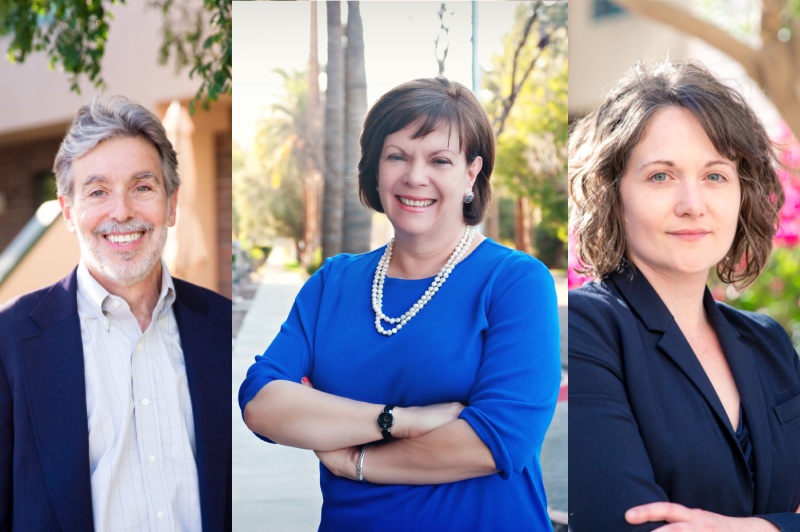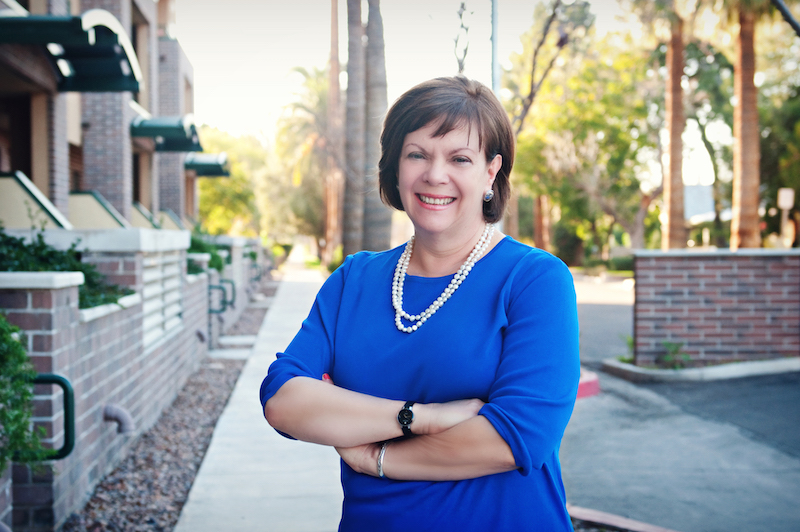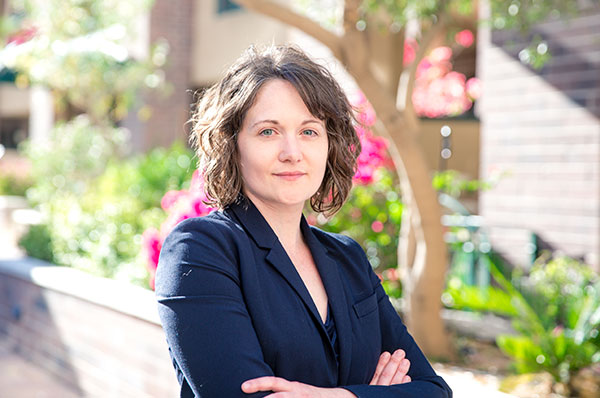Polling State Bar of Arizona members for their recommendations on the Valley’s most outstanding attorneys, PHOENIX Magazine selected Sam Coppersmith, Karen Owens, and Mel Soliz for its 2023 Top Lawyers list. Well known for his work in business and transactional issues, Sam helps clients navigate a variety of business organizations, governance, and compliance related matters. He has nearly four decades of experience assisting both local and national businesses and nonprofits, as well as individuals and small businesses. Sam also offers clients the extensive political and governmental experience he gained as a member of the U.S. House of Representatives — where he served on the Transportation and Science committees, the Chair of the Arizona Democratic Party, and as a member of numerous state and local boards and...
Read MoreRead MoreWhen the Arizona Capitol Times named its 2023 Leaders of the Year, Andy Gaona was among the statewide leaders recognized for their contributions to Arizona's growth and quality of life. Honored in the Public Service category, Andy was selected for his role in defending democracy against the unprecedented attacks it faced over the past two election cycles. This is the second consecutive year that the Arizona Capitol Times has recognized Andy as one of its Leaders of the Year. "Those of us who work with Andy on a daily basis know his first-rate legal expertise, advocacy skills, and commitment to democracy in our state. We're very proud that the Arizona Capitol Times continues to recognize Andy for his leadership and public service in these areas," said...
Read MoreRead MoreThe Joint Commission recently extended the permitted timeframe for hospital medical staff credentialing from two to three years. Health Care Law partner Karen Owens broke down the change and the effects of a three-year credential cycle in her recent presentation at the Arizona Association of Medical Staff Services’(AAMSS) Fall Conference. Karen explained that 3-year credentialing can help streamline and enhance quality-assessment processes, analyzed the applicable regulations and interpretive guidelines, and highlighted a number of operational issues involved in three-year credentialing, including CMS’ position, the mechanics of switching over, and risk management considerations. Karen represents health care systems, hospitals, clinics, and other providers in matters of medical staff credentialing and peer review, medical staff structures, bylaws and confidentiality, as well as National Practitioner Data Bank, state professional board,...
Read MoreRead MoreBest Lawyers® has not only recognized 15 of our 22 attorneys for exceptional work in 17 categories, but also named Kent Brockelman “Lawyer of the Year” in Litigation — Labor & Employment and Andy Gordon “Lawyer of the Year” in Litigation — Health Care and Litigation — Antitrust. The Best Lawyers in America© is the longest-running peer-review publication in the legal profession. Each year, Best Lawyers conducts comprehensive surveys of tens of thousands of lawyers who confidentially evaluate their professional peers. Based on the results of these surveys, the publication designates the year’s leading lawyers in all 50 states and the District of Columbia. The Coppersmith Brockelman attorneys recognized in the 2024 edition are: 2024 Best Lawyers Michael Aguirre: Corporate Law (2024) Keith Beauchamp: Bet-the-Company Litigation (2024),...
Read MoreRead MoreMajor abortion rights groups are launching a bid to enshrine abortion protections into the Arizona Constitution through a voter initiative that would appear on the ballot in 2024. Andy Gaona, head of Coppersmith Brockelman’s nationally recognized elections, political, and public law practice and attorney representing the abortion rights effort, was called on by the Washington Post for commentary on this historic effort. Andy told the Washington Post that initiatives are a fundamental part of Arizona’s history, and that this recent effort fits squarely within the initiative power’s use when elected representatives fail to respond to their constituents. Indeed, a ballot measure approved shortly after statehood secured women’s suffrage rights. An experienced political, election, and constitutional law attorney, Andy has played a critical role in the practice’s biggest...
Read MoreRead MoreAs one of the nation’s top health data, interoperability, and health equity attorneys, the Phoenix Business Journal recently inducted Mel Soliz into its 40 Under 40 (Class of 2023), including a special feature where she shared details about her legal career and personal life. Mel was selected from nearly 400 nominees for her impact in the Valley’s business and charitable communities, including her commitment to advancing health equity and responsible health data stewardship in her community. “I am honored and thrilled to have been selected for this year’s 40 under 40. I am extremely grateful to Contexture for nominating me and giving me the opportunity to work on such important projects with the Arizona and Colorado teams,” she said. In the Q&A profile, Mel weighed in with advice...
Read MoreRead More



